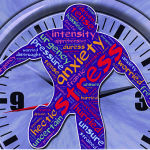Our ability to control our behavioral and emotional responses is known as self-regulation. Different things can make us react strongly, and our ability to control those reactions is determined by our capacity to self-regulate.
If we can’t control ourselves very well, we often have trouble controlling our emotions and act in ways that are bad for us. If you find yourself being described with words like “over-emotional” or “overreacting” by friends or family, this is likely the case.
This means that if you have self-control, you can choose to do things that may be difficult in the moment but will pay off in the long run. It is also a significant component of self-regulation.
If you have ever tried to stick to a diet or quit smoking, you know how hard it can be to exercise self-control.
Self-regulation therapy helps individuals learn how to manage their responses in proactive and positive ways. The approach is based on neurobiology and the belief that, like animals, we have three options when confronted with a dangerous situation: to fight, to run away, or to freeze.
There are three ways animals respond to threats in the wild which creates a build-up of energy. Animals discharge this energy through running, twitching, and shaking.
Although we humans share a central nervous system response to potential threats, we often can’t get rid of the extra energy that comes with it. The SRT process is a way to release energy in a positive way, instead of negative behaviors.
SRT is a therapy similar to Cognitive-Behavioral Therapy that helps individuals become better connected with their bodies and physical responses. It also helps them find ways to create new neural pathways that allow for more positive reactions and regulation.
Benefits of Having Self-Control
Benefits of self-control and self-regulation over emotions and behaviors is beneficial to many areas of our lives, especially personal relationships.
Here are four research-backed benefits:
1. Self-control helps you achieve goals
Being able to control yourself and resist temptation in order to focus on long-term goals is important (Walter Mischel PhD, 2014). If you have poor self-control, you’re likely to give in to rewards that aren’t very important, but are satisfying right away.
If the goal is to lose weight, giving in to temptation and eating a large slice of chocolate cake will only provide a short-lived sense of satisfaction.
2. Self-control helps you build stronger relationships
When people are experiencing powerful emotions, they may act in ways that are out of character and that they later regret.
It can be difficult not to fight back when someone does something to hurt you, but studies have shown that people who can control themselves and understand how the other person is feeling do a better job of keeping their close relationships strong.
3. Self-control enables better resilience to life challenges
Englert and Bertrams (2015) determined that those with low self-control responded less accurately to math questions when under pressure. The people who had more self-control said that they were less bothered by negative thoughts.
If we have high self-control, we can stay focused and handle challenges well, without getting sidetracked and with a good amount of control over our urges.
4. Self-control is beneficial for our physical health
Adler (2015) found that people with more self-control are better at sticking to health and dietary goals and overcoming addictive behaviors such as drinking too much alcohol and smoking cigarettes. This is because they are better at resisting temptation and controlling their impulses.
Because individuals with strong self-control are able to better manage their health-related behaviors, it stands to reason that these individuals also tend to live healthier lives overall.
Techniques and Skills
If you have struggled with developing greater self-regulation and self-control, it might seem difficult to comprehend how you can begin to improve. The way to achieve your goals is to start with small ones and then work your way up.
1. Implementation Intention
This technique involves making a decision before a temptation or scenario arises that will test your sense of self-control.
An example of setting an intention would be if you are trying to resist sweet treats and are heading to a party, you could plan ahead and create the intention: ‘If they offer me a dessert, I will ask for an herbal tea instead.’
This intention planning can be used in different situations to help stop yourself from doing things that would usually use up a lot of willpower: making a decision.
READ MORE: How To Prevent Overeating When Working From Home
2. Regular Meditation
Meditation is a process of self-control in itself. You need to be mentally strong to be able to sit and let your thoughts come and go, without reacting to them or becoming too focused on any one of them.
If you can spare even five minutes a day for meditation, it will help you develop self-control and the ability to let emotions come and go without reacting to them.
3. Get Enough Sleep
When we are tired, we are less likely to be able to resist temptation, moderate our emotions, or exert willpower.
A good way to develop healthy sleep habits, keep your mind sharp, and promote self-regulation is to establish a regular bed and wake time routine.
4. Invest in Your Physical Health
A healthy body has a significant impact on our overall mood and capacity to self-regulate, just like sleep.
Creating healthy habits, such as regular exercise, drinking enough water, and eating a well-balanced diet, keeps you healthy, promotes a clear mind, and exercises your self-control.
Practical Self-Regulation Tools
1. Create a Personalized Plan
The ability to regulate your behaviors can be hard. If you want to improve your relationship with food, your body and yourself, you need to have a plan. When you set up a personalized plan, you set yourself up for success. Otherwise, you will have nothing to regulate.
If you don’t take action today, your goals will just be a daydream and you’ll be stuck fantasizing about what could happen tomorrow. You need a plan.
If you want to improve your self-regulation, you need to create a personal plan with achievable goals. For example, if you’re trying to heal your emotional relationship with food, you might set realistic weight-loss or body-image goals. An overly rigid plan is when you have a plan that is too constricting. This might mean following a very strict diet, working out excessively, or taking other drastic measures. If you rely on someone else’s external plan to tell you what to do, you will not be able to develop self-regulation skills.
You will need to make small changes that are achievable and practical. Whatever plan you come up with, it should give you some room to learn and make improvements as you go. This will help you stay on track to achieving your goals and keeping up the good work in the long run.
Your plan should not be static and should allow you to make changes as needed. Your plan is yours. Not your friends, your moms, your co-workers, but yours. Your plan will need to fit your personal needs.
In order for your plan to be effective, it needs to allow you to grow through self-reflection and self-awareness. Your plan will encourage people to be more independent and in control of their own well-being.
2. Recognize Where You Sabotage Your Goals
You can either keep sabotaging yourself or you can make the decision to stop. When you are aware of the ways you sabotage yourself, you can choose to either keep sabotaging yourself or make the decision to stop. In order to achieve success, you need to do two things: stop sabotaging yourself. Ok, maybe it’s not that simple.
For example, if you can practice portion control and healthy choices when you are out with friends, but can not use that same discipline when eating at home. You need to only allow healthy food to be in your home. This will help you not overeat when you are alone. By food and put it in portions when you bring it home from the grocery. This can help you not eat the whole bag of chips.
If you would rather stop self-sabotaging than give in to any negative beliefs about yourself, it will take some effort.
When you change your thoughts your actions will follow. Allow only positive thoughts about your goal to remain in your mind. Only speak positive thoughts about your ability to make your goal. These thoughts will lead to positive actions that will lead to you actually making your goal. Be your own cheer leader!
If you are not totally committed to your goal, you are more likely to fail.
3. Change Your Mindset
When you change your mindset, you change everything. When you tell yourself that you are going to do something and imagine yourself doing it, you are much more likely to actually do it.
You are FAR less likely to take action when you leave your plans in a fantasy space. Mindset is a decision you make before you take action. It’s a choice you make about how you’re going to view the situation and what you’re going to focus on. Mindset is a different way of looking at things and it is closely related to self-regulation and self-discipline.
However, discipline is not just about punishing someone or making them face the consequences of their actions. I am talking about disciplining yourself in order to get rewards because it feels great to make progress and meet your goals!
Your perspective is important when it comes to creating a focused mindset. If you view hard work as being difficult, it will only be another obstacle to overcome. If you see hard work as a positive thing that gets you closer to your goals, helps you make positive changes, and allows you to live the life you want, then you’re likely to be successful.
If you change the way you look at things, your whole life will change. Take time daily to create a mindset of action.
Think about why you want what you want and believe that it is possible to achieve.
4. Create an Accountability System
You can only be truly accountable to yourself. If you are held accountable by others, it means you could be punished or rewarded. When you force yourself to do something that you don’t want to do, the act of doing it is its own reward.
Your progress IS the reward. The reward is living a life you love and being in control of your behavior so it matches what you want.
In spite of what has been said, being involved in an accountability group can help you to keep going. When you have others to support you, you will feel more connected. This allows you to access energy sources that come from feeling supported and motivated.
Start by making a plan for what you want to achieve, what steps you need to take to get there, and any potential obstacles that might get in your way. Talk these through within your accountability team.
The people who hold you accountable for your actions and goals can be anyone who you feel comfortable confiding in and who will help encourage you to achieve your objectives. This might includes friends, family, co-workers, or others who share your interests and who want to see you succeed.
If you feel that you need more support, hiring a coach or therapist will give you the level of support and accountability you need. The more you take action towards your goals, the better you become at self-regulation.
When you share your ideas with others in a group or team setting, you inspire them and receive inspiration in return to make your ideas happen.
Conclusion
Building self-regulation as an internal strength takes time. If you’ve been struggling with this for a long time, don’t expect it to happen overnight! Although change and growth may be difficult, they are ultimately worth the investment.
When you create a plan and hold yourself accountable, you will see changes in your life.
The best place to start is by thinking about what you want and why you want it. It can be helpful to remind yourself frequently of your long-term goals in order to make choices that will help you develop self-regulation skills, even when those choices may be uncomfortable.
You are growing your self-regulation muscle every time you choose not to believe negative thoughts, take time to create a healthy mindset, and check in with yourself and your supporters.
Convenient foods are often filled with artificially and genetically-modified ingredients. During this unprecedented time, you don’t need to compromise your health for convenience. We blend, bottle and ship pure superfood nutrition straight to your door. Pure & Premium Nutrition Formulated with Your Health in Mind, that is what Platinum & Purium are all about. Reboot your health and lifestyle with a 10 day transformation.









